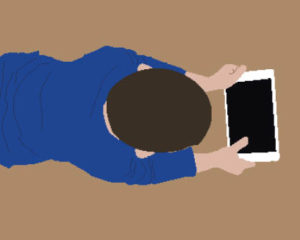An inside look on technology expected to debut in 2018
The year 2018 has already been dubbed the year of growth and new beginnings. So far, it has brought new resolutions, new music, and (not to mention) America’s one-year survival of President Donald Trump. Now, all attention is turned to all of the new technology developments that consumers are patiently awaiting. After a year full of smart speakers and virtual reality, it is exciting to see what developers have in store.
Cell phone providers have released word that it is possible that we will have 5G network by the end of 2019. It will be ten times faster than 4G, making it even better than most home internet services. In addition to internet improvements, smartphones can expect other advancements of their own. China’s Vivo is in the process of showing off a phone featuring a new type of fingerprint sensor developed by Synaptics that sits underneath the screen. This would make it possible to offer an “all-screen” device without forcing fingerprint readings to be done on the rear.
Virtual reality has proved itself to be far from dead—Oculus is hoping to turn more people to virtual reality with a standalone headset that will cost $200. Mixed reality is so much more interesting in that it wants to incorporate virtual objects and experiences with the real world, offering different possibilities.
“Mixed reality wants you to blow holes in the walls of your living room with a laser gun, have a pet cartoon dog that permanently roams around your house, build virtual sculptures on the coffee table, fill your surroundings with as many monitors as you can ask for, and allow you to walk down the street in the real world alongside avatars of people who are sitting in their living rooms,” commented blogger, Rhett Jones.
The new year is expecting technology to make increases medically as well; Apple has begun research to make their Apple watch product more exciting. Last year was the year that Apple watch began enhancement, and it was the year that the FDA approved the first medical device accessory. A UCSF study found that Apple’s built-in heart monitor could detect an abnormal heart rate with 97% accuracy when an artificially intelligent-based algorithm called DeepHeart was used in conjunction with this device. The same team behind that study later found that the Apple Watch-DeepHeart combo could detect sleep apnea with 90% accuracy, and hypertension with 82% accuracy.
Drone products really took off in 2017. Now, consumers will be able to take off with them—literally! The plan is for the drone to eventually autonomously carry two passengers up to 70 miles to their destination.
“The reason that we’re seeing drone-makers specializing in different areas is that technology has become extremely commoditized, so to succeed you need a specific use case of your own,” Ben Wood, tech consultant, commented.
From watches to fridges, artificial intelligence will be making a bigger appearance in 2018 as well. Businesses such as GE and HTC have pre-announced artificial intelligence cooking controls for microwaves and/or ovens, and ceiling lights with built-in features for Alexa and Google Assistant.
“We believe customer choice is important, and that multiple AIs can be complementary of each other,” commented an Amazon spokesman.
From the looks of it, it is going to be an exciting year for technology.




